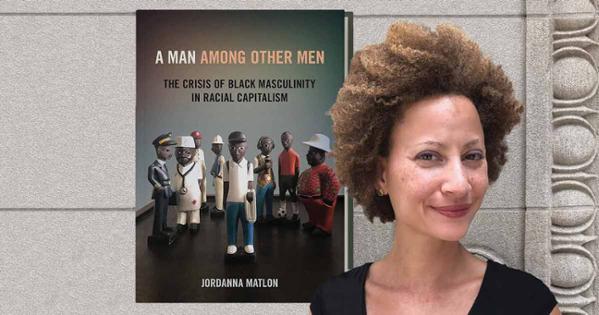Ten Awards—and Counting

Jordanna Matlon was just two months old when she took her first international flight from her native Saint Paul, Minnesota, to what is now Burkina Faso. In the years since, the urban sociologist has lived and worked on six continents, her curiosity about the world growing the more she explores it.
At her academic home—the School of International Service’s Department of Global Inquiry—Matlon’s scholarship probes the construction and perception of otherness, including her own.
“What led me on my path to become a sociologist has a lot to do with growing up in different places,” Matlon said. “When I was in West Africa, I was not considered Black. But then, when I was in the States, I was. I think being an African American, living in those contexts, and understanding how racial identity shifted according to history and geopolitics was pivotal.”
Her quest to explore race and belonging led her to Abidjan, Côte d’Ivoire, where she uncovered how French colonial legacies and media tropes of Blackness act as powerful axes, rooting masculine identity and value within labor, consumerism, and commodification.
“There are very different ways to do sociology, from ethnography to quantitative methods, so there is room for me to do the deeply immersive fieldwork that I do,” Matlon said.
Her time in Abidjan led to what would become an award-winning book. A Man among Other Men: The Crisis of Black Masculinity in Racial Capitalism, released in 2022, has won a swath of awards, including the prestigious 2024 John Ruggie Annual Best Book Award from the International Studies Association, the only professional organization of its kind.
“The list of past winners is basically a global who’s who of top international relations scholars,” said SIS professor Patrick Thaddeus Jackson, chair of the Department of Global Inquiry. “Winning the Ruggie Award conveys that Jordanna’s book was, in the awards committee’s judgment, executed better than any other book in the field published that year, all over the world.”
In writing A Man among Other Men, Matlon thought “very broadly and trans-historically across the ‘Black Atlantic,’ about capitalism centrally and racial capitalism specifically, and how that manifests along gendered lines.”
Doing so led her to examine the impact of global Black celebrities like Jay-Z.
“Celebrities become references to a form of aspiration and create a sense of potentiality among marginalized Black men,” Matlon said. “There are not a lot of opportunities through wage labor—the jobs you get are dead-end jobs. Nevertheless, there’s certainly this idea that the system is okay, and proof that the system is OK comes from figures like Jay-Z or football players or basketball players that ‘we can make it.’”
Matlon said she wrote the book in part to flip the script of how people understand the concept of difference.
“I'm trying to step away from this idea of studying people to study dynamics of power. Instead of studying places or objects or things or people, we need to study how relations of difference and otherness are actually produced,” Matlon said. “So, it’s not that I’m studying people who are different; I’m studying the production of difference and how that has effects that are both material and ideological.”
Also different for a scholarly book, especially one winning a lot of social science awards: photographs.
“I had a lot of pictures in my book, and part of my analysis was actually the analysis of images,” Matlon said. “It wasn’t just because I liked pictures, but rather I think that’s important for understanding Blackness and racial capitalism. The visual construction of difference has been a big part of racial capitalist ideology, and Black people have often responded with their own visual affirmations, like ‘Black is Beautiful.’”
“What I say in the conclusion is: ‘Blackness would be a tragic ally in a system built on naturalized inequality and concluding in ecological destruction.’ I care about consumerism because somebody else is losing out, right? If we’re basing our identities and ideas of self-respect on capitalism, like if the shoes we wear are mediating our social relations, it means that we’re conflating being with having.
“Colin Kaepernick’s Nike endorsement didn’t get us any closer to achieving the demands of the Black Lives Matter movement, but for a lot of Black folk, it felt like a win,” Matlon continued. “So, this in itself is troubling, especially given the history of the commodification of Black people that began with the slave trade. But it’s also based on a disposability that’s based on a premise of resource extraction that, in turn, requires some worker in a sweatshop in a different part of the world who is working to produce those shoes that then are part of your identity. What troubled me about all of this was you’re not escaping what’s ultimately destructive socially and ecologically, and so, in my next project, I plan to interrogate that.”
